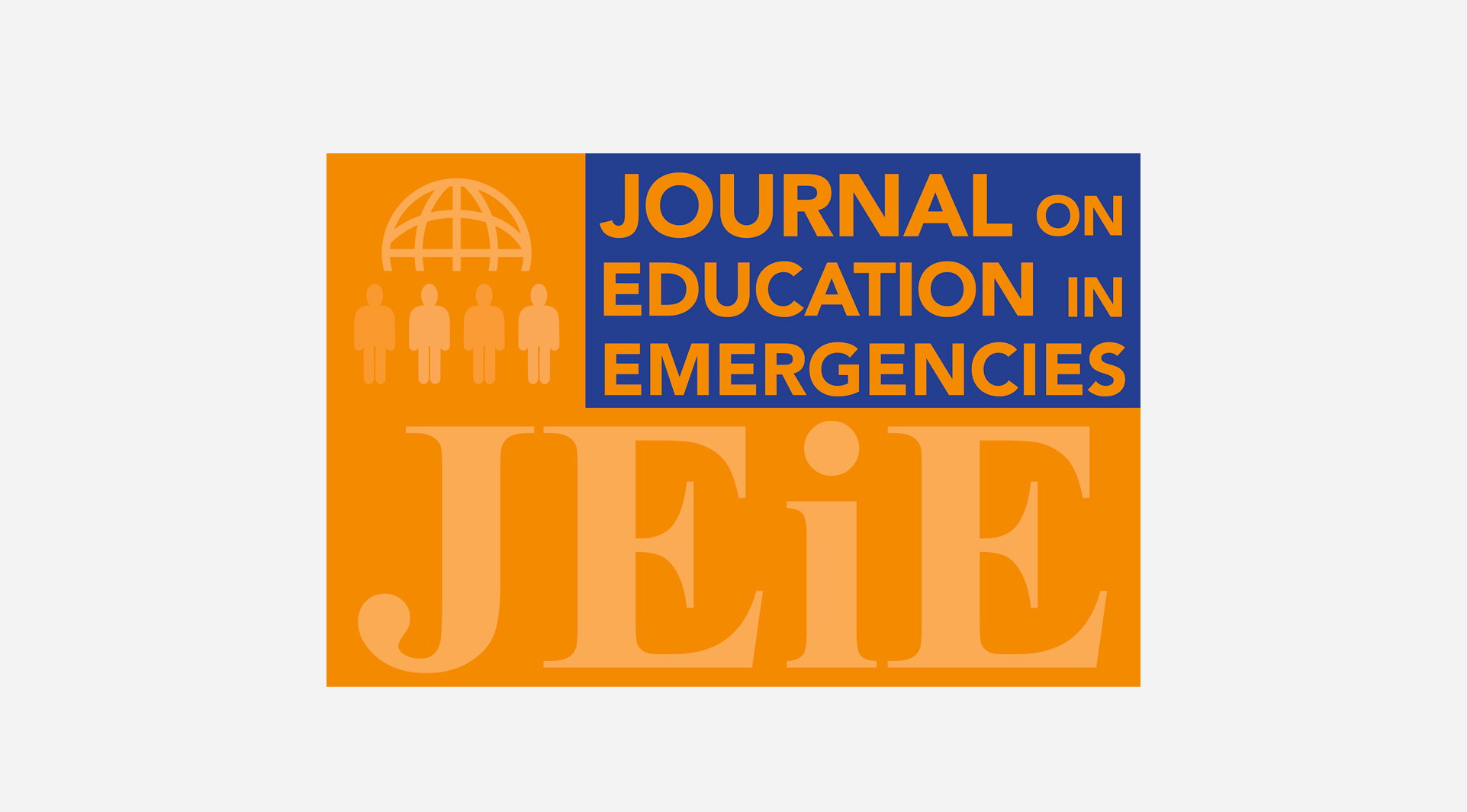Call for Papers: Special issue on Psychosocial Support and Social and Emotional Learning in Emergencies (Journal on Education in Emergencies)
Projected publication: Summer/Fall 2020
Submission deadline: 7 January 2020
Conflict and crisis threaten the wellbeing and healthy development of children and young people. A recent systematic review and meta-analysis conducted by the World Health Organization indicates that the adverse effects of conflict and war on mental health are more significant than previously estimated (2019). Experiencing adverse events and living in unstable environments can contribute to behavioral changes, negatively affect educational access and programming, and inhibit learning and cognitive development in children and young people, with consequences reaching into adulthood (Shonkoff and Garner 2011). Literature examining these associations is predominated by evidence from Western contexts, and there is an urgent need to broaden our understanding to include ways in which conflict and crisis affect these linkages.
Psychological health, emotional wellbeing, social cohesion, and education are linked in many ways. For example, exposure to cognitive-behavioral and group therapies is associated with positive effects on enrollment in school, retention, and students’ emotional regulation in the classroom (Betancourt, et al. 2014). Psychosocial support (PSS) services and resources such as school psychologists and counselors, mentors from one’s community, and mental health specialists available in education settings can also support positive outcomes all along the emergency continuum. For example, providing key survival messages related to self-protection and strategies for addressing emergency conditions can help reduce stress and mental health problems during and after conflict or crisis (Inter-Agency Standing Committee 2007).
Beyond community-based PSS programming efforts, in-class support shows significant promise. Social and emotional learning (SEL) curricula, instructional practices, and materials help students acquire the attitudes and skills to manage and regulate complex and difficult emotions, build prosocial attitudes, learn empathy and awareness of others, and develop conflict resolution skills (Collaborative for Academic, Social, and Emotional Learning 2019). Equipping students with these skills may help reduce the risk of future conflict and prevent relapses into conflict in fragile environments. Recent guidance from INEE (2018) outlines approaches for incorporating PSS and SEL into formal and nonformal education responses to emergencies. The Ecological Approaches to Social Emotional Learning Lab (Harvard EASEL 2019) is exploring the psychological underpinnings of SEL, while parallel research considers the measurement and effectiveness of PSS and SEL programming and interventions (Ager et al. 2011; NYU Global TIES and International Rescue Committee 2017). Despite these efforts, large gaps remain in our understanding of PSS and SEL, especially with regard to how children and youth’s psychosocial wellbeing intersects with emergencies and education.
The Journal on Education in Emergencies (JEiE) seeks research articles and field notes submissions for a special issue on PSS and SEL in emergencies. JEiE welcomes theoretical and empirical research articles that analyze, assess, measure, critique, or otherwise address any aspect of PSS and/or SEL in conflict or crisis contexts. Additionally, JEiE welcomes field note submissions that present innovative tools or approaches related to PSS/SEL in emergencies, or observations and commentary on research work. JEiE also invites suggestions for books for review on these themes. Topics of interest include, but are not limited to:
- Psychological foundations of PSS and/or SEL for educational practices and pedagogy in emergencies
- PSS/SEL measurements, metrics, tools, or assessments developed for education in emergencies (EiE)
- PSS/SEL programming and initiatives in formal and nonformal EiE spaces
- Capacity building and psychosocial support for teachers, parents, caregivers, mentors, and communities
- Development and revision of PSS/SEL educational materials in conflict and crisis contexts
- PSS/SEL and higher education
- PSS/SEL as a preventative measure against future conflict
- Effectiveness of and challenges associated with PSS/SEL programming
- Psychiatric and mental health counseling access and availability for students and young people affected by conflict and crisis
All manuscripts are subject to a double-blind peer review process and must have a 200-word abstract. Research articles should be 9,000 words or fewer, including references, and field notes submissions should be 4,000 words or fewer, including references. Formatting and references should follow the Chicago Manual of Style, 16th Edition.
Recognizing the global scope of these issues, JEiE seeks submissions from all regions of the world.
The deadline for submitting manuscripts is January 7, 2020. Authors are invited to submit abstracts for brief comment from the JEiE Editorial Team regarding their manuscript’s suitability for inclusion in the special issue until November 30, 2019. Please submit manuscripts via PeerTrack, JEiE‘s manuscript submission system, at https://www.editorialmanager.com/jeie/default.aspx.
For further information regarding the submission process please refer to: https://inee.org/evidence/journal/information-for-authors
Click here to view the full call

